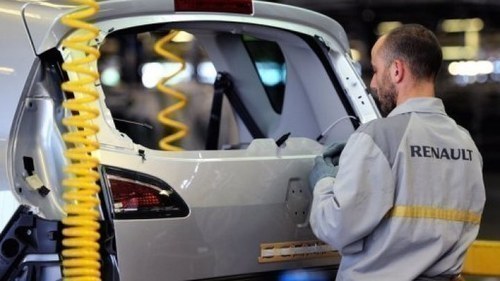KARACHI: Imports of used cars and minivans surged to 65,723 units in 2017, up almost 70 per cent from 38,676 units a year ago, latest data released by the auto industry shows.
The arrival of sport utility vehicles (SUVs) also increased 59pc to 7,758 units. Imports of pickups and vans registered a 9pc rise to 3,154 units.
The local industry maintains a record of each imported vehicle, whether new or old, through the Import General Manifest (IGM). Every imported car is logged in the customs’ IGM.
Toyota Vitz was most popular foreign vehicle in 2017
Toyota Vitz remained the most popular imported car in 2017. As many as 8,680 units arrived in 2017, up almost 40pc from a year ago. The volume of Daihatsu Mira swelled 73.1pc to 6,091 units.
Toyota Aqua imports climbed 96pc to 7,123 units from 3,622 units in 2016.
As many as 5,088 units of Suzuki Every were brought into Pakistan in 2017, up 14.6pc year-on-year. Imports of Daihatsu Hijet rose 34.5pc to 3,367 units.
The arrival of Suzuki Alto doubled to 4,158 units from 2,013 units a year ago. Suzuki WagonR imports surged 115pc to 3,574 units.
Imports of Honda Vezel and Toyota Land Cruiser stood 2,431 units and 3,301 units in 2017, up 57.5pc and 55.7pc, respectively, on an annual basis.
The overall volume of imported used vehicles grew 65pc to 76,635 units in 2017 from 46,500 units a year ago, data showed.
Low interest rates, increase in auto financing by banks and lifting of vehicles by investors for cab services like Careem and Uber boosted the imports of used cars as well as sales of locally assembled vehicles.
The government imposed regulatory duties on the purchase of foreign used vehicles in October, which largely failed to dent the overall annual import figures.
Sales of locally produced cars rose 20.4pc on a year-on-year basis to 103,432 units in July-December.
According to the Pakistan Bureau of Statistics, overall imports of cars increased 64pc to $276 million in July-December.
Pakistan Association of Automotive Parts and Accessories Manufacturers’ former chairman Aamir Allawala said the local vending industry lost estimated revenue of Rs23 billion last year.
The estimate is based on taking the average local content per vehicle of Rs300,000 on imports of 76,645 units in 2017. This is in contrast to a loss of Rs14bn in 2016 with imports of 46,500 vehicles.
He said imports of used cars were the biggest impediment to investment by existing assemblers, new entrants and part makers.
He said the government has modified the procedure for the payment of duties and taxes to curb imports of used vehicles.
“Time has come for the existing players to make prompt investment in capacity expansion, improve localisation, introduce new models and reduce delivery time to eliminate the menace of premium,” he said, adding that an increase in production will boost tax revenue and create jobs.
In the near future, Hyundai, Kia and Renault will set up plants in the country.
Published in Dawn, January 26th, 2018













































